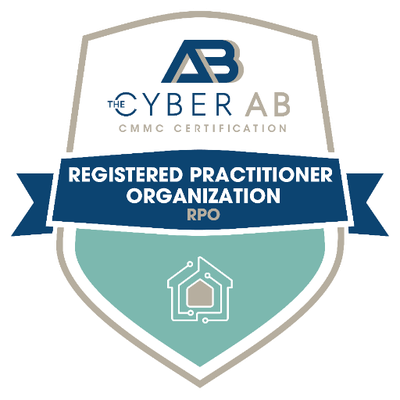 Does Your Small Business Need an Enterprise-Grade Router?
Does Your Small Business Need an Enterprise-Grade Router?
This blog post is for small business owners contemplating a simple question: Does my small business need an enterprise-grade router? A simple question deserves a simple answer, so that’s what you’ll get here — not an avalanche of terminology, just solid, actionable advice.
But first, a brief overview is in order. Let’s talk about what a router even is — in plain English — and go over two broad categories of routers: home routers and enterprise-grade routers.
What Even IS a Router?
A router, simply put, is a little computer — physical or virtual — that allows multiple devices in a single network to ‘talk to’ each other and to the internet. A router directs, or ‘routes,’ packets of information within the network, so that the information ends up at the right place. For instance, if you want to print something at your small business, your router makes sure the information gets sent to the printer.
In short, routers coordinate where data flows within a network — between devices, to and from the internet. If you’re a business owner, you can think of your router as the hub of your organization’s entire IT infrastructure.
Home Routers vs. Enterprise-Grade Routers
There are various types of routers, and it’s easy to get lost in the dizzying number of features and functions that distinguish them from one another, but routers can be divided into two general categories: home routers (a.k.a. “consumer-grade routers”) and enterprise-grade routers (a.k.a. “business routers,” “business-class routers,” or “commercial routers”).
Home routers and business routers serve the same basic function — routing traffic within a network — but there are important differences between the two.
The overarching difference is — you guessed it — home routers are designed primarily for use in the home, while business routers are designed primarily to be used by businesses.
But this doesn’t tell us very much. So, let’s dig into what actually separates the two types of routers, with an eye to answering the simple question: Which one should you be using at your small to medium-sized business (SMB)?
Home Routers vs Business Routers: Breaking Down the Differences
Cost
Business routers are much more sophisticated, secure, and reliable than home routers, and for this reason, they cost more. A typical business router runs from $500 to several thousand dollars, while home routers generally cost less than $100. For this reason, a lot of SMB owners go with the latter, thinking it’s a frugal decision that will save their business money.
But the truth is, business routers are only more expensive initially; over time, a business router will likely save your business money — and lots of it! By the end of this blog post, it should be clear why.
Security
The superior security that enterprise-grade routers offer businesses is, by itself, a good reason NOT to use a home router at your organization. Cybercrime is rampant in this day and age, and contrary to widespread belief, it’s not just large corporations that get hit by cyberattacks. In fact, hackers are increasingly targeting smaller companies because they know ‘the little guy’ tends to lack robust security.
If you’re skeptical, here are some stats to help you wake up and smell the danger:
- 43% of data breaches involve SMBs
- 61% of SMBs have reported at least one cyberattack over the past year
If more business owners knew just how common cyberattacks have become, we’d surely see a greater level of investment in cybersecurity. But, shockingly, 43% of SMBs don’t have any kind of cybersecurity plan in place.
Simply put, if you’re a small business owner and security is a priority — which it should be — it’s more than sensible to go with a business router over a home router; it’s essential. Most home routers now come with a basic firewall, but the problem is, it takes a lot more than that to fend off the incredibly sophisticated cyberattacks hackers deploy these days.
For example, ZuoRAT is a next generation threat which targets SOHO (Small Office/Home Office) routers. It spies on you and your network, allows threats to become persistent, and can cost your business with downtime or further compromise.
Support
Routers, like any hardware, need to be maintained, updated, patched, etc. If your business uses a consumer-grade router, this can quickly become a huge hassle. Patching a home router can be difficult and time-consuming — especially when you throw compliance into the mix — and in many cases, it’s downright impossible. In a lot of cases, ‘patching’ or ‘updating’ a home router means throwing it away and purchasing a newer model.
Home routers do a lot with very little, but there’s a new model every year. And while enterprise equipment has an expected lifespan, consumer-grade isn’t necessarily promised a single update, and manufacturers can lack the resources to fix a nasty bug. Moreover, consumer-grade routers cut corners for components like flash storage or RAM, limiting their flexibility. They also use a patchwork of disparate software, which creates difficulties around maintenance. And, with built-in obsolescence, vendors can’t always keep home routers up-to-date, even if they wish to do so.
Bottom line — when you purchase a business router, your contract with the vendor will ensure a level of support that you simply can’t get for a home router.
Quality & Features
When it comes to quality, the difference between home and business routers tends to be vast. Your typical home router requires regular rebooting, which means one thing for your business: DOWNTIME! How costly is downtime? Let’s just say the upfront cost of purchasing a business router looks like pocket change compared to the cost of severe downtime. Check out this blog post to learn more.
In short, an enterprise-grade router is designed to last multiple years, even a whole decade or more, while home routers are designed to be thrown away after a year or two.
And when it comes to features, business routers blow home routers out of the water. Take, for instance, a VPN (virtual private network). In this age of remote work, VPNs are essential to ensuring that remote workers can access your organization’s network safely and securely. And, although most home routers boast some kind of VPN, a business router will give you a built-in VPN that is significantly more effective (i.e., secure and reliable). If some of your workforce is remote, a powerful VPN isn’t a luxury, but a necessity.
Scalability
If you want to grow your business, you’ll want a router that scales easily to support more devices, users, data, etc. In other words, you’ll want an enterprise-grade router. Business routers, unlike home routers, scale easily as your business grows.
Business-class hardware is made to connect far more systems in far more intricate ways than virtually any consumer-grade router. You can plug a 24-port switch (or more than one) into nearly any business router, which would bring a home router to a grinding halt — or crash it entirely.
And hardware is just part of the equation. Software is different between the standard consumer-grade router and an enterprise device. A consumer-grade router may allow certain features, but they don’t always play well together. The difference is between a device that may do something and one that will do something.
Summing Up
A business-class router is appropriately named, as it is suitable for use by businesses. Opting for a home router to save money in the short-term is likely to come back and bite you, as home routers simply aren’t equipped to evolve with technological change, defend against sophisticated cyberattacks, or scale with your business.
Spending a little more on an enterprise-grade router now is almost guaranteed to save you money in a long run. Indeed, when you zoom out and consider the overall benefits of a business router, it’s clear that purchasing one for your SMB isn’t so much a cost as it is a wise investment that can ‘future-proof’ your growing organization.
Picking the right router for your small business is an important decision, but wading through the plethora of options can be stressful and confusing. Working with a managed service provider (MSP) is a great way to ensure that not only your router, but your entire IT infrastructure, is optimized for your business’s specific needs and goals. Remember, business is better when IT runs smoothly!

 Does Your Small Business Need an Enterprise-Grade Router?
Does Your Small Business Need an Enterprise-Grade Router?

